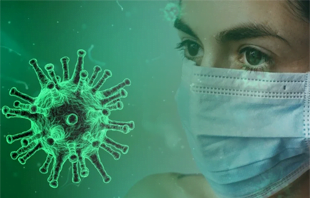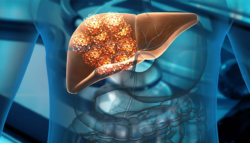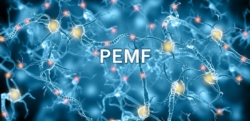Throughout 2020, the world is shrouded in the shadow of SARS-CoV-2. Now 2021 has arrived, but SARS-CoV-2 is still with you. People all over the world urgently need therapies and vaccines against SARS-CoV-2.
Many scientists have found that neutralizing antibodies have the potential to block the virus from infecting the target cells, and monoclonal antibodies have the advantages of a clear mechanism of action and easy mass production. So SARS-CoV-2 neutralizing antibody is the research priority of the therapeutic drugs on the current stage. However, there are many misunderstandings among the general public about neutralizing antibodies.
One of the common misconceptions is that antibodies can kill viruses. but it is not the truth.
Let’s start with the virus, taking SARS-CoV-2 as an example.
Like other viruses, the structure of SARS-CoV-2 is also very simple, consisting of external proteins and internal nucleic acids. The nucleic acid of SARS-CoV-2 is RNA, which is an RNA virus. Specifically, SARS-CoV-2 contains four main structural proteins: Spike Protein (S for short); Membrane Protein (M); Envelope Protein (E); Nuclear Capsid protein (N). Among the four proteins, the most important is the spike protein (S protein). The S protein contains two subunits, S1 and S2, where S1 contains an N-terminal domain (NTD) and a receptor-binding domain (RBD). SARS-CoV-2 binds to the receptor ACE2 on the surface of human cells through the RBD of the S protein. Just like a key with a lock, SARS-CoV-2 opens the way into the host.
What is an antibody? An antibody is essentially a kind of protein, which looks like a tree branch. The branch part is used to recognize and bind antigens, and most of these antigens are different.
Hexane protein. So in principle, as long as the foreign protein enters the human body, it will be recognized by the immune system, and then the corresponding antibodies will be produced. But the problem is that before we produce enough antibodies (and other substances such as cytokines) to fight the virus, the virus may kill us first. This is why a vaccine is needed. The essence of a vaccine is an antigen, but it has no virus toxicity through modification. Speaking of antibodies. When SARS-CoV-2 invades the human body, because it has several different proteins, the human body will produce different antibodies.
However, not all antibodies have antiviral effects. For example, the N protein inside SARS-CoV-2, even if the vaccine produces antibodies against the N protein, because this antibody cannot reach the N protein, it does not work. For example, the M protein and E protein on the surface of SARS-CoV-2, these two proteins do not mediate the binding of the virus to human cell surface receptors. Therefore, the binding of the corresponding antibody to them may not affect the entry of the virus into the cell. Only the neutralizing antibody against S can really prevent the invasion of SARS-CoV-2. After the neutralizing antibody against S binds to the SARS-CoV-2S protein, SARS-CoV-2 loses its ability to bind to the ACE2 receptor of human cells. . This is why most vaccine clinical trials not only measure the total antibody level but more importantly, measure the neutralizing antibody level separately.
The development of blocking neutralizing antibodies against the SARS-CoV-2 S protein RBD can prevent the S protein RBD from binding to ACE2, thereby blocking the virus from contacting the host cell, and ultimately preventing virus infection. This is an important way for neutralizing antibodies to exert antiviral effects, and it is a different treatment strategy from other drugs that hinder the replication of viruses in cells. Because SARS-CoV-2 has a high degree of homology with SARS-CoV virus, neutralizing antibodies targeting the SARS-CoV virus may also have neutralizing activity against the SARS-CoV-2 virus.
Of course, non-neutralizing antibodies are not useless, they can also mediate viruses into macrophages. However, the role of non-neutralizing antibodies is very complex. They may also cause other adverse immune reactions in the human body, such as lung immune damage, as some problems caused by the precipitation of antigen-antibody complexes, and even aggravate the disease.
Therefore, almost all mRNA vaccines (Pfizer vaccine, Moderna vaccine), recombinant protein vaccines (Novavax vaccine), adenovirus vector vaccines (Cansino vaccine, Oxford vaccine, David Satellite vaccine, Johnson & Johnson vaccine), etc. all choose only SARS-CoV- The S protein of 2 is the antigen because the S protein is the core of the problem. Therefore, if the S protein of the new coronavirus mutates greatly after a few years, basically all vaccines will fail. Whether it is an inactivated vaccine, an mRNA vaccine, or an adenovirus vector vaccine, the antibodies produced by other proteins cannot effectively prevent the virus from invading.
Although many challenges exist, neutralizing antibodies still offer a therapeutic option to control the current pandemic and the possible re-emergence of the virus in the future, and their development, therefore, remains a high priority.






